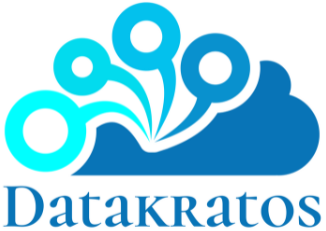Skip to content
1. Introduction
- 1.1 Overview of the AWS Certified Advanced Networking – Specialty Certification
- Purpose of the certification
- Target audience and recommended experience
- 1.2 Exam Structure
- Multiple-choice and multiple-response questions
- Scoring model and exam weightings
- 1.3 How to Use This eBook for Exam Preparation
- Study strategies and tips
- Recommended learning resources
2. Domain 1: Network Design (30%)
2.1 Edge Network Services and Traffic Management
- 2.1.1 Design Patterns for Content Distribution Networks (CDNs)
- Knowledge: Amazon CloudFront, caching strategies
- Skills: Evaluating global inbound/outbound traffic for CDN optimization
- 2.1.2 Global Traffic Management Solutions
- Knowledge: AWS Global Accelerator and its use cases
- Skills: Designing solutions using AWS Global Accelerator with Elastic Load Balancing (ELB)
2.2 DNS Solutions for Public, Private, and Hybrid Networks
- 2.2.1 DNS Protocol Basics
- Knowledge: DNS records (A, AAAA, CNAME), TTL, DNSSEC
- Skills: Configuring public and private hosted zones in Route 53
- 2.2.2 Route 53 Integrations
- Knowledge: Route 53 health checks, alias records, resolver endpoints
- Skills: Designing multi-account and multi-region DNS architectures
2.3 Load Balancing for High Availability and Security
- 2.3.1 Types of Load Balancers
- Knowledge: Layer 3, 4, and 7 load balancing (Network Load Balancer, Application Load Balancer)
- Skills: Selecting appropriate load balancers and integrating with Auto Scaling
- 2.3.2 Load Balancer Configurations
- Knowledge: Proxy protocol, cross-zone load balancing, session stickiness
- Skills: Configuring encryption and authentication (TLS termination)
2.4 Logging and Monitoring for Visibility
- 2.4.1 AWS CloudWatch and VPC Monitoring
- Knowledge: CloudWatch metrics, logs, alarms, and dashboards
- Skills: Setting up VPC flow logs, VPC Reachability Analyzer for network performance monitoring
2.5 Hybrid Connectivity and Routing
- 2.5.1 On-premises to AWS Network Design
- Knowledge: BGP, static vs. dynamic routing, Direct Connect, Site-to-Site VPN
- Skills: Designing redundant hybrid architectures
- 2.5.2 Multi-Account and Multi-Region Connectivity
- Knowledge: Transit Gateway, VPC Peering, AWS PrivateLink
- Skills: Managing IP overlaps and connecting multiple VPCs using the appropriate services
3. Domain 2: Network Implementation (26%)
3.1 Routing and Hybrid Connectivity Implementation
- 3.1.1 Implementing Hybrid Connectivity Solutions
- Knowledge: VPNs, Direct Connect, colocation facilities
- Skills: Configuring static/dynamic routing for hybrid architectures
3.2 Multi-Account, Multi-Region VPC Connectivity
- 3.2.1 Inter-VPC and Multi-Region Connectivity
- Knowledge: Transit Gateway, VPC Peering, PrivateLink, MPLS
- Skills: Configuring hybrid networks with third-party solutions
3.3 Hybrid and Multi-Account DNS Architectures
- 3.3.1 DNS Traffic Management
- Knowledge: DNS delegation, weighted/geolocation-based traffic management
- Skills: Configuring private/public hosted zones and DNSSEC for hybrid DNS architectures
3.4 Infrastructure as Code (IaC) for Networking
- 3.4.1 Automating Network Infrastructure
- Knowledge: AWS CloudFormation, AWS CDK, Terraform, AWS CLI
- Skills: Automating hybrid network deployments using IaC and event-driven architecture
4. Domain 3: Network Management and Operation (20%)
4.1 Managing AWS and Hybrid Routing and Connectivity
- 4.1.1 AWS Networking Services and Limitations
- Knowledge: Direct Connect, Transit Gateway, VPC Peering
- Skills: Managing routing protocols like BGP, IP subnets, and bandwidth quotas
4.2 Network Monitoring and Troubleshooting
- 4.2.1 Network Performance Metrics and Troubleshooting Tools
- Knowledge: Reachability Analyzer, VPC Flow Logs, CloudWatch
- Skills: Identifying and resolving packet loss, connectivity, and routing issues
- 4.3.1 Choosing the Right Connectivity Solutions
- Knowledge: AWS Global Accelerator, CloudFront, Transit Gateway
- Skills: Optimizing bandwidth, reducing latency, and selecting cost-effective connectivity options
5. Domain 4: Network Security, Compliance, and Governance (24%)
5.1 Network Security for AWS Architectures
- 5.1.1 Security Threats and Mitigation Strategies
- Knowledge: AWS WAF, AWS Shield, AWS Network Firewall
- Skills: Implementing secure inbound/outbound traffic flows, securing VPC traffic between accounts
5.2 Network Monitoring and Logging for Security
- 5.2.1 Network Monitoring Tools
- Knowledge: CloudWatch, VPC Traffic Mirroring, AWS CloudTrail
- Skills: Implementing automated alerts and analyzing security logs
5.3 Data Encryption and Confidentiality
- 5.3.1 Encryption Methods
- Knowledge: TLS, IPsec, Direct Connect encryption
- Skills: Implementing encryption for data in transit and using AWS Certificate Manager (ACM) for TLS
6. Appendix
- 6.1 In-scope AWS Services and Features
- 6.2 Out-of-scope AWS Services
- 6.3 Additional Learning Resources and Study Tools
